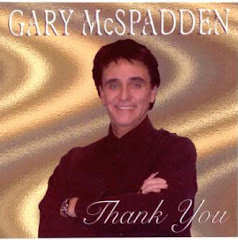Why do Agents Turn Down Good Books?
With so many of our members concerned with the issues relating to Agents, I thought it would be a good thing to remind ourselves of the way Agents see these things from the other side of the table. I regularly read several Agent Blogs, to try and keep current with their ever changing thinking.
I'll blog this in several parts to cut down on size and hope that we get a good conversation going about it.
http://killzoneauthors.blogspot.com/2009/07/why-do-good-agents-turn-down-good-books.html
By Anne Hawkins, Literary Agent
John Hawkins & Associates, Inc.
Anne Hawkins is an agent with John Hawkins & Associates, which was founded as Paul Reynolds Literary Agency in 1893, and makes it the first literary agency founded in America.
Anne is not only a highly respected, and beloved agent with a list of best-selling authors in her stable. She is a consummate professional with impeccable instincts, a devoted advocate for her authors, but she’s also a blind hoot. It is with great pleasure that I welcome Anne here as my guest on The Kill Zone.
Rejecting authors’ projects is one of the least pleasant aspects of my job. It’s no fun to feel that I’ve ruined someone’s day, even though I always try to be gentle and courteous. How much nicer it is to call or e-mail and say, “I love what I’ve read. Please send more.”
Of course, the most common reason for rejection is a perceived lack of quality, a natural reaction to a misbegotten query letter or sloppy sample pages. Sometimes, however, I have to turn down projects that are actually quite good. Subjective judgment plays a large role in that sort of decision, but so do other business considerations. Let’s take a look at some of the factors that influence an agent’s choice of books for representation.
PERSONAL TASTE: A literary agent sinks or swims professionally because of her taste in books. This taste impacts the kinds of books she represents (her list), her contacts among editors and publishers, and ultimately her success in the business. Good agents learn to trust their taste and only represent projects that inspire them, because those are the books they’re likely to sell.
Most of us concentrate on the areas we enjoy and where we consequently have the greatest knowledge and expertise. If we don’t “get” it, we don’t handle it. You may be the next Dr. Seuss, but if the agent you query doesn’t fancy children’s books, she’ll almost certainly turn you down.
Authors can minimize this kind of turn-down by researching the kinds of books each agent does represent. Jeff Herman’s GUIDE TO EDITORS, PUBLISHERS, AND LITERARY AGENTS (most recent edition) is the premier print resource, since each listed agent states specifically the sorts of books she does and does not handle. Some of the best on-line resources are the searchable databases on Authorlink.com, Publishers Marketplace.com, and the Association of Authors’ Representatives (AAR) website. Sad to say, certain other writer-friendly sites perpetuate information is that is either out of date or downright wrong. (One has me listed as a top agent for horror fiction, even though I have never represented a single book in the genre.) There is good information on the internet, but do yourself a favor and cross-reference. Don’t rely on any single source.
PASSION: For me to take on a new book by a new author, especially a novel, I simply have to love it. It’s not enough to “like” it or “admire” it or consider it “salable”. We’re talking about real passion here. Even at the very beginning of the submission process, editors can sense when the agent is on fire about a book -- and the feeling is contagious. Chances are, that’s the book the editor will choose to read first. Later on after the sale, down the long, bumpy road to publication, an agent needs this kind of wild enthusiasm to continue to be a strong and persuasive advocate for the author and his work. “Lukewarm” just won’t go the distance.
KNOWLEDGE OF MARKET: An agent needs to keep track of the markets for the kinds of books she represents. This knowledge may be as general as the track record of an entire genre or as specific as one publisher’s immediate needs. In short, agents need to know what’s hot -- what’s not -- and who’s looking for what. Market factors are a huge topic, so here are just a few examples:
Publishing is in the business of selling books, lots of books. If an agent wants to place a book with a major publisher, she has to believe that book has the potential to attract a substantial number of readers. If she judges that its market is too small or too specific, she’ll most likely decline.
The existence of a recent, successfully published book (or books) can make a similar project extremely hard to sell. Even if your book is better, somebody has beaten you to the punch. The concept is no longer “new news.” This is particularly true for non- fiction, but it applies to novels as well. If the market appears saturated with a certain kind of book, an agent will be reluctant to take on a new project in that category, knowing that her chances of placing it are slim.
Sometimes, an agent will know that the market for an entire genre is on the decline, so she’ll be hesitant to take on any book of that sort. At other times, a market will be on an upswing, so she’ll be champing at the bit to land an author in that genre. Historical fiction, for example, was a tough sell for many years. Recently, however, its popularity has surged to the point that agents who wouldn’t have touched the genre five years ago are now actively looking for it.
What To Do with Strange Experiences
3 days ago








Thanks for the insight, John! I'm anxious to see your other posts.
ReplyDeleteThe intro into Donald Maass's new book, The Fire in Fiction, is eye-opening, too.
Thanks, John, for the great information.
ReplyDelete